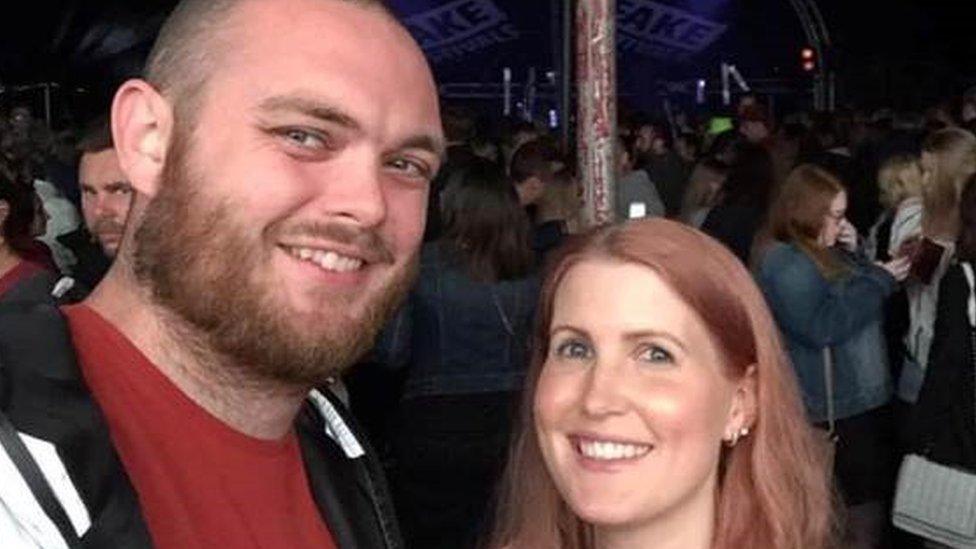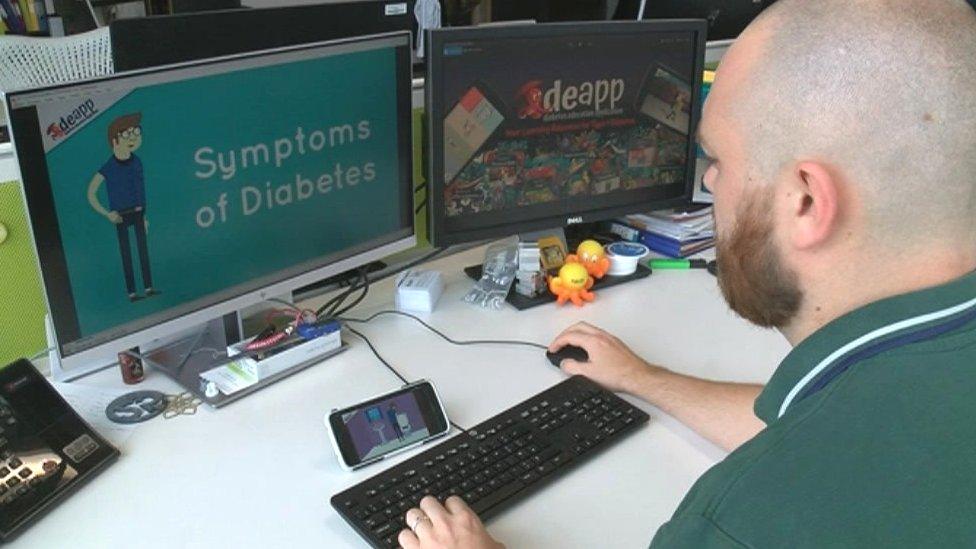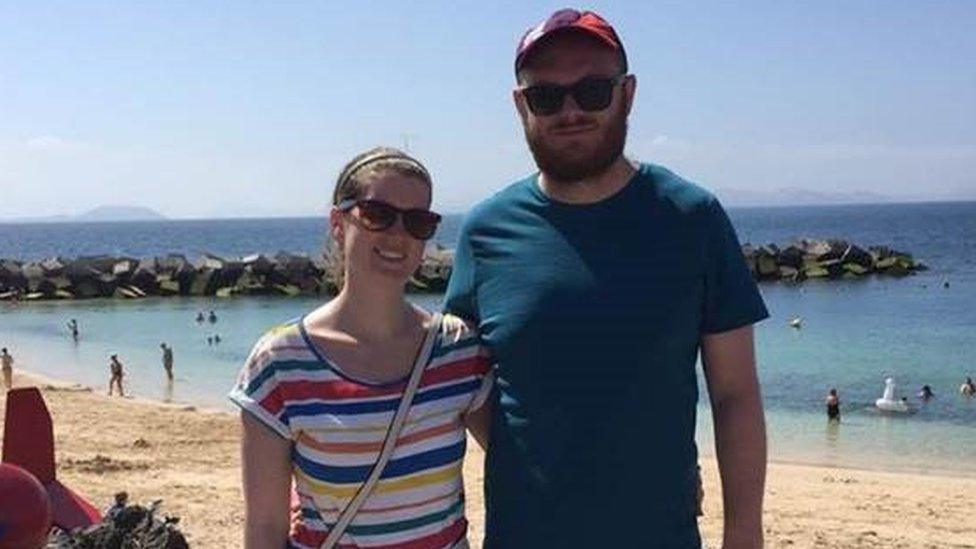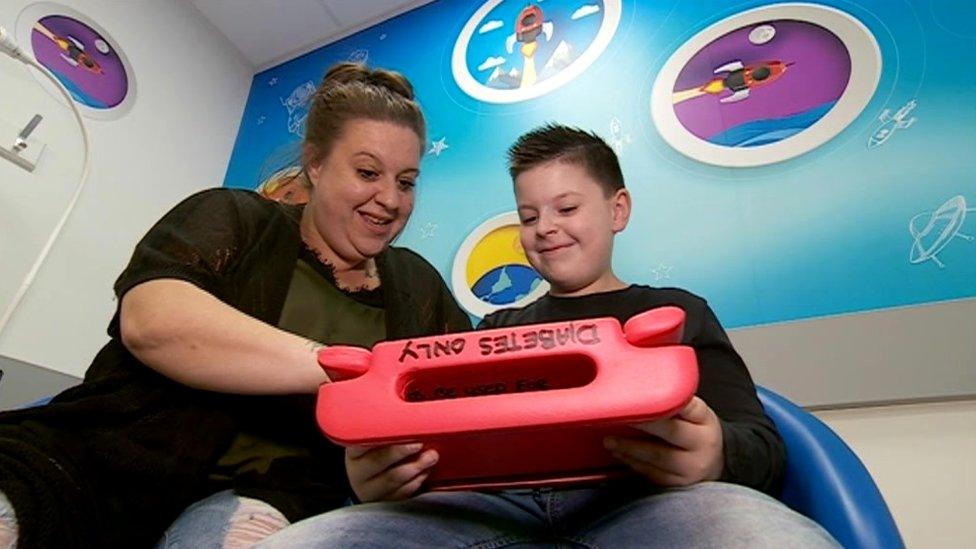Type 1 diabetes app designer diagnosed wife with condition
- Published

Lee Paxman-Clarke encouraged his wife Collette to have a blood test which diagnosed her with Type 1 diabetes
A designer diagnosed his wife with Type 1 diabetes while developing an app to help children with the condition.
Lee Paxman-Clarke said a year into the development of Diabetes Educational Application (Deapp), his wife Collette began to show signs of the illness.
He said "I knew the symptoms" from learning about Type 1 diabetes for the app and encouraged her to have a blood test, which confirmed his suspicions.
Deapp teaches newly-diagnosed children about living with the condition.

Collette Paxman-Clarke then "became a guinea pig for the app"
Mr Paxman-Clarke, a member of the De Montfort University design team in Leicester that worked with the NHS on the app, said: "[Collette] became unwell - she was more tired, more thirsty, she was going to the toilet more and lost weight.
"I encouraged her to have a blood test and coincidentally, she was diagnosed with Type 1 diabetes.
"She then became a guinea pig for the app."

What is Type 1 diabetes?
It is a serious, lifelong condition where your blood glucose level is too high because your body cannot make a hormone called insulin
People with Type 1 diabetes get insulin into their body by injecting it, or using an insulin pump
Diet or lifestyle does not cause Type 1 diabetes - experts are still not sure what causes it
About 8% of people with diabetes in the UK have Type 1 diabetes


Collette said she felt reassured by the app her husband designed
When Mrs Paxman-Clarke was diagnosed, she was put straight on to insulin.
"I came out with a massive bag of supplies and then just got into my car and cried," she said.
She later watched the videos on the app her husband designed and felt reassured.
"One of the first videos explains that its not your fault it's happened to you," she said. "You need reassurance that you didn't bring it on yourself."

Max Lowe said he has learned about Type 1 diabetes by watching Deapp videos
Mr Paxman-Clarke said: "Usually kids go to hospital for three days when they are diagnosed and are fed a wealth of information.
"With the app they can learn independently and the nurses can test their knowledge through games, toys and props."
Deapp, which has already been used by nearly 200 children recently diagnosed with the condition in the East Midlands, is set to be rolled-out across the UK and possibly abroad.

Follow BBC East Midlands on Facebook, external, Twitter, external, or Instagram, external. Send your story ideas to eastmidsnews@bbc.co.uk, external.